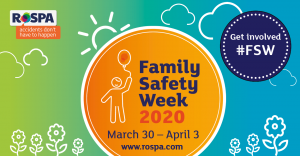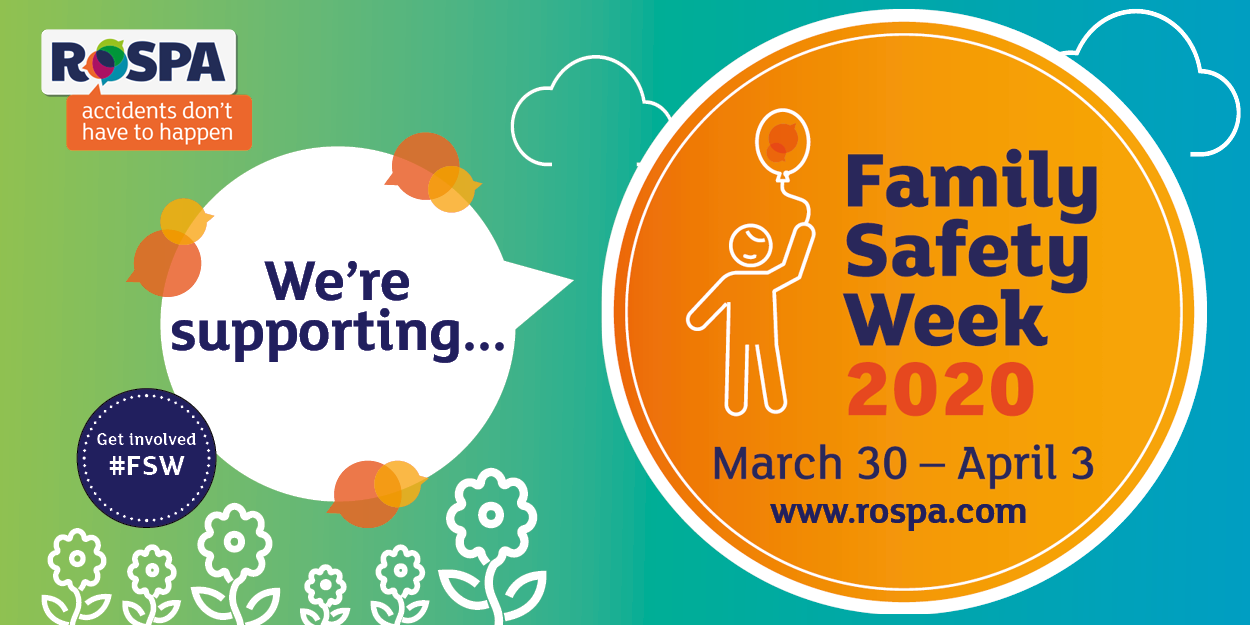Family Safety Week – Your guide to IT safety at home
Every year ROSPA (The Royal Society for the Prevention of Accidents) holds a family safety week to provide advice and guidance that helps avoid accidents at home. This year is it 30 March to 3 April.
In 2020, the campaign had to take an unprecedented turn, as a result of the coronavirus pandemic to focus on a “The Accident Free, Avoid A & E campaign” to help prevent people placing more pressure on the NHS at this very difficult time.
Surprisingly, over 6,000 home accident deaths across the UK every year, so here at Link ICT we thought we might do our bit to help avoid visits to A&E by providing some useful tips related to safety whilst using IT at home, particularly as many parents may be working from home and be using electronic devices to keep children entertained.
So we’re covering the following topics:
- IT Device safety
- Internet and browsing safety

Family Safety Week – Your guide to IT safety at home
IT Device Safety
Overheating: The main risk to safety is fire and electrocution, which can be caused by faulty equipment. So be extra vigilant and check all computers, laptops, desk top screens, phones and tablet devices on a daily basis. Whilst usually children may be set time limits for the length of time they can play with these devices, being home all the time may lead to the equipment getting too hot and the risk that they may burn out. Make sure that your children are aware that they need to tell their parents or carers if devices do start to get too hot, and that they must let devices cool down by switching them and off.
Charging Leads: The most prevalent cause of fire is a charging lead that gets too hot and starts to burn. Never leave a device on charge overnight, avoid charging in a bedroom and leaving them on fabrics such as bedding and carpets. Carry out regular checks on cables and plugs to ensure they are not getting too hot and that they are in good condition and that the outer insulation is not damaged.
Cable Safety: Lots of devices might mean lots of cables, and the temptation to use and overload extension cables. Exercise caution with the number of extension leads that are used and how many devices are plugged in at any one time. Only use genuine leads and chargers and BSI approved extension cables. Also be mindful of where cables are positioned. Little one’s may be tempted to run around the house and could accidently trip up or run into on cables that they might not see.
Food & Drink: Whilst dropping food on your devices might not necessarily cause the user to have to visit A&E, it most certainly might lead to some form of device failure. So ensure you do not eat or drink near laptops, keyboards, tablets, phones and other devices.
Remember, a spilt drink could potentially cause a power surge and fuses to blow, which may cause power failure and the need to call out an emergency electrician to restore power. Finding an electrician willing to come out to fix your wiring and fuse box might be difficult due to social distancing.
Internet & Browsing Safety
Whilst not a safety issue that can impact health, whilst running through the above safety checks with children, it may also an opportune time to remind them about internet and social media safety. Here are some key examples to avoid downloading IT related viruses and avoid cyber fraud:
- Don’t click on suspicious links
- Be vary of password reset requests – never divulge passwords
- Don’t accept friend requests from people you don’t know, or are already friends with
- Be vary of clicking on video’s
You can also get involved in the campaign by visiting the ROSPA website and downloading the social media assets to share on your social media using #FSW
Link ICT provides outsourced IT Support to businesses and schools. If you need help ensuring people can work safety at home or need additional cloud based support or new hardware such as computers, laptops, phones or tablet devices please get in touch.

